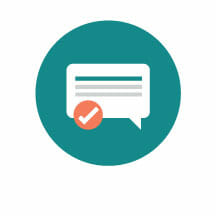
Internationally known ADHD Experts answered questions about:
- ADHD relationships and communication
- Comprehensive treatment plans for ADHD
- ADHD parenting
- Diagnosis of children and adults with ADHD
- ADHD and co-occurring conditions
Click the question below find a link to a short video answer provided by an expert in the field of ADHD diagnosis, treatment, and life with ADHD. All the videos have transcriptions included!
We also have a list of all our topics here
ADHD and Parent-Child Relationships
Parent-child issues often involve communication, parental stress, discipline, behavior management, emotions, and academics.
Read more…
Understanding Girls and Women with ADHD
Unique factors make girls’ experience with ADHD different: including psychological risks, eating disorders, and general inattentiveness.
Read more…
How can I improve communication at work?
Melissa Orlov offers some ideas on how to address ADHD challenges to communication at work without using ADHD as an excuse.
Read more…
ADHD, Young Adults, and Their Parents
ADHD impacts young adults and their parents. There are challenges with academics, relationships, and work. A young adult must figure out how to make the best decisions for themselves.
Read more…
Why does my partner with ADHD have so much trouble with emotional regulation?
Learning to recognize the source of emotional outbursts can help one become a better partner and allow both partners to work together to improve the relationship.
Read more…
How does distraction challenge a relationship when a partner has ADHD?
When a partner has ADHD, distraction can cause hurt feelings.
Read more…
What challenges to communication are caused by ADHD?
Distraction, inattention, and forgetfulness can make the partner without ADHD feel unloved. Working on symptom management together can improve communication and strengthen a relationship.
Read more…
How effective is medication for treating ADHD?
Clinicians and patients must work together to find the “sweet spot” of the right medication and the right dose for the maximum benefit in the treatment plan.
Read more…
What lifestyle changes can improve family life?
Good sleep practice and healthy nutrition helps parents address ADHD symptoms in children and makes family life a little more smooth.
Read more…
What is the role of self-care in managing ADHD?
Self-care strategies like sleep, exercise, stress management, coaching, therapy, and diet all support treatment for ADHD.
Read more…
What are the challenges of parenting a child or children with ADHD?
Our children with ADHD aren’t trying to provoke us—they are struggling with an executive function challenge.
Read more…
My Child Has ADHD. Could I Have It, Too?
Steps to take when a child is diagnosed with ADHD and other older family members begin to notice symptoms in their own lives.
Read more…
Under what circumstances can an ADHD diagnosis be missed?
Not everyone receives ADHD as a diagnosis in child, often because they don’t display the symptoms of the hyperactive presentation.
Read more…
Which is better for treating ADHD? Medicate or not?
Medications and non-medication, often lifestyle, approaches have their roles to play in a treatment plan for ADHD. Often, the two approaches support one another, making each more affective.
Read more…
How do you decide what to treat first when there is more than one diagnosis?
The most troubling condition is usually treated first, with ADHD addressed afterward.
Read more…
What is the impact of social challenges for people with ADHD?
Anxiety, often co-occurring with ADHD, can diminish joy and make social interactions harder, especially with ASD. Treating ADHD may ease some of this stress.
Read more…
What are the most common co-occurring diagnoses/conditions in adults?
Co-occurring disorders with ADHD are common, and Dr. Thomas E. Brown stresses the importance of treating both to provide relief.
Read more…
What symptoms suggest you might have ADHD, and what steps should you take if you think you do?
How can I build a healthy relationship and support my emerging adult who has ADHD?
It’s common for young adults to rely on parents for support—learn healthy, positive ways to help them during this stage of life.
Read more…
How can people balance attention to strengths as well as to relative challenges?
Alongside addressing co-occurring conditions, it’s important to focus on strengths, which provide a foundation for growth beyond ADHD challenges.
Read more…
Diagnostic Silos: Treating more than one disorder at a time
Treatment should not be limited to diagnostic silos; it’s important to address multiple disorders together rather than separately.
Read more…
What are some things adults can do if they think they may have ADHD?
What are some of the characteristics you should be aware of when considering whether you might have ADHD? And what should you do if you think you do?
Read more…
What’s the best way to talk with a child who has ADHD?
Choosing positive words and avoiding sarcasm can improve communication and help support children coping with ADHD.
Read more…
Why is ADHD not diagnosed until adulthood in some people?
The gap between the demands of life and one’s coping skills can cause a person to recognize their ADHD – in their 20s, 30s, 40s and older.
Read more…
How do you protect the relationship with a child who has ADHD?
ADHD can put a strains on the relationship between parent and child. Read about what you can do to nurture the relationship with your children.
Read more…


